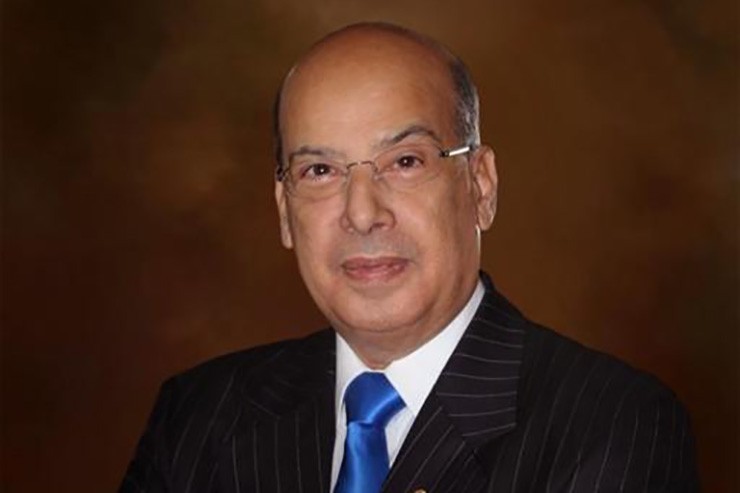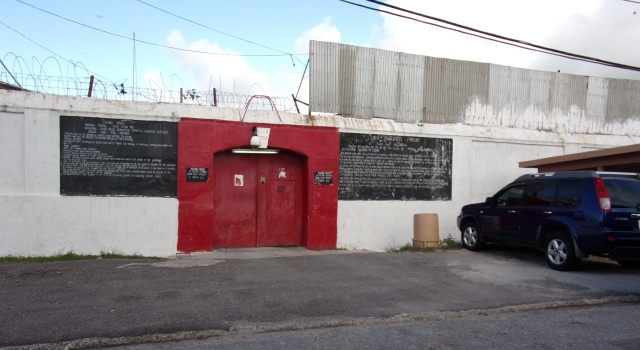By Sir Ronald Sanders
Three U.S. Senators, who have done little to advance the interests of the Caribbean and with whom requests for meetings by many Caribbean Ambassadors are usually shunted to their staff, are now proposing U.S. government punishment for Caribbean countries that request assistance from Cuba for medical personnel.
The three Senators are all members of the Republican Party. Two of them represent Florida – Marco Rubio and Rick Scott – and the other, Ted Cruz, is a Senator from Texas. Senators Rubio and Cruz have strong Cuban heritage and are known to be virulently opposed to the Cuban government. Senator Scott is a former Governor of Florida and has been a senatorial representative of the State since 2019, having run a campaign wooing the significant Cuban-American population.
On June 17, the three Senators introduced in the U.S. Senate, the “Cut Profits to the Cuban Regime Act”, which, if it is adopted, will penalise any government, worldwide, that contracts with the Cuban government for the provision of medical personnel. Since many Caribbean governments have such contracts with Cuba, they all stand to be targeted.
Among the measures that the Bill, sponsored by the three Senators, seeks to impose are “a requirement that the Department of State publishes the list of countries that contract with the Government of Cuba for their medical missions program”, and that the contracts be considered “as a factor in considering that country’s ranking for Trafficking in Persons (TIP) report”.
In other words, these three U.S. Senators are seeking to disregard the sovereign right of other countries to enter arrangements with Cuba. In any event, a principle of international law and norms is being casually disdained, as if the rights of States do not matter.
The Senators also show a remarkable indifference to the critical public health emergency confronted by all Caribbean countries, particularly now in the seemingly endless era of the COVID-19 pandemic and its disastrous effects.
Had the three Senators considered a discussion with Caribbean representatives before they introduced their Bill, they would have learned that, for many countries of the Caribbean, the presence of Cuban medical personnel has made a huge and beneficial difference to their capacity to manage COVID-19 and its spread. It is no exaggeration to say that, without the Cuban medical personnel, the medical system of several Caribbean countries would have collapsed.
The Senators would also have been reminded that the United States, despite all its great resources, found it difficult – and are still finding it difficult – to respond to the demands that the pandemic has placed on its public health system. If the U.S. cannot cope, how would any objective person believe that the Caribbean can do so without help?
Further, the Senators might have considered what assistance the U.S. provided to the region in terms of the medical personnel that they urgently needed and continue to need.
Senator Scott is reported to have said that “Any country that requests medical assistance from Cuba is aiding their human trafficking efforts”, because, in his view, Cuban medical personnel sent abroad are “forced labour”. Caribbean countries have had no experience that substantiates this opinion. Indeed, Cuban medical personnel have conducted themselves with professionalism, integrating well with local medical teams and passing-on their knowledge and experience. Caribbean countries have no basis for believing that the medical personnel are “forced labour”. But, if the government of any country believes this claim to be true, there are international bodies to which it can be taken, and evidence proffered in support of a decision to uphold the allegation. Caribbean representatives would have encouraged the Senators to pursue such a definitive course of action, which all governments would have respected. One attempt to internationalise this claim by a private European-funded group came to nothing.
Had they had the chance to do so, Caribbean representatives would have reminded the three Senators that COVID-19, in addition to being a public health emergency, is wrecking the economies of Caribbean countries, some more severely than others but all without exception. They are now confronted with their greatest economic challenge. Government revenues have dropped drastically, expenditures have increased extraordinarily, and employment and poverty are expanding rapidly. In all this, there has been a poor response from richer countries that could have helped.
The Caribbean needed to get COVID-19 under control not only to save lives in their communities, but also to salvage their economic prospects, now and in the future.
Cuba has provided Caribbean countries with medical assistance for over 30 years; the present contingent of Cuban personnel is not a new development. These arrangements have been formally negotiated and set out in contracts. Further, Caribbean governments have knowledge of the circumstances of Cuban medical personnel because for three decades, Caribbean doctors have trained in Cuba on scholarships that richer neighbouring states have not offered.
Until and unless other Governments step up to help, Caribbean governments will be constrained to get assistance from where they can, including Cuba.
The Senators would also have been advised that most Caribbean countries have worked closely and well with the U.S. government to curb human trafficking. An attempt to mar this cooperative work by introducing a political dimension to it – particularly a very narrow one – would be tragic. A conversation with the Senators would be welcome.
The hemisphere – like the rest of the world – needs cooperation in improving the human condition; what it does not need is coercion for political purposes.
A Caribbean conversation with the Senators would be welcome.




















One response to “Caribbean among countries unfairly targeted by US Senators over Cuba”
The USA will continue to bully around countries. Unless it is not their way its the high way. That policy will ultimately be at their own detriment. People will more and more dislike them and their leadership in the world will be questioned big time. They are now for six decades fighting the Cuban people that not even their allies in Europe are supporting them in this. And the thing is the American people have never ever taken interest in their government’s foreign policies in the world. And when things happen they wonder why they are hated around the world. Something not long ago was unthinkable. People use to love everything about the Yankee. The flashy lifestyle the dream that if you work hard you can make it in the USA. Land of the Free Home of the Brave. All that is nice and well accept when you now have turned into a big bully. People will stand up against bullies no matter how big and strong they are. Its time the USA changes its strategy in the world if they want to remain the world leader not only militarily but also morally.